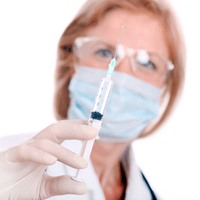
It appears that a compounding pharmacy in New England is to blame for an outbreak of a rare form of fungal meningitis that has killed at least 15 people in the United States and made over 100 others sick. While compounding pharmacies can be an excellent resource for custom medications, they are poorly regulated and many act outside the legal limits.
 What are Compounding Pharmacies?
What are Compounding Pharmacies?
Compounding pharmacies are pharmacies that can make medications precisely for your needs. Many advocates of bio-identical hormones support compounding pharmacies because they can create hormone replacement therapy medications using natural hormones. They can also create medications if a person is allergic to inert ingredients in a commercially produced medication or if a patient has an adverse reaction to the taste of a drug. Compounding pharmacies are only supposed to make medications in small quantities for individual use and following a doctor’s prescription. They may only produce larger quantities of medications if there is a shortage of the commercially produced drug.
The Problem
Unfortunately, a number of compounding pharmacies have seen an advantage in creating drugs in mass quantities to fill public demands. In the case of the recent meningitis outbreak, New England Compounding Center mass-produced a form of methylprednisolone, which is injected in patients for back pain. The medication is supposed to be sterile but was contaminated during production resulting in an outbreak in fungal meningitis. Rather than being produced in small quantities for individual patients, NECC produced enough of the product to be distributed to pain clinics in 23 states.
Each state is required by the FDA to monitor the activities of compounding pharmacies to ensure they are operating within the narrow limits of the law. Inspectors and regulators are charged with making sure ingredients are legal and sterile and the pharmacies are licensed. In this case, there was a substantial failure on the part of the FDA to ensure that state monitoring agencies did their job.
Compounding pharmacies can be a wonderful source for medications if you have a specific need for a medication not available through commercially produced drugs. If you are using a compounding pharmacy, ask about licensure and how the medication is created. Find out if the pharmacist is using sterile lab techniques. It is up to you to be proactive regarding the health and safety of you and your family members.
Do you think Compounding Pharmacies need to be more or less regulated?
– The Alternative Daily

